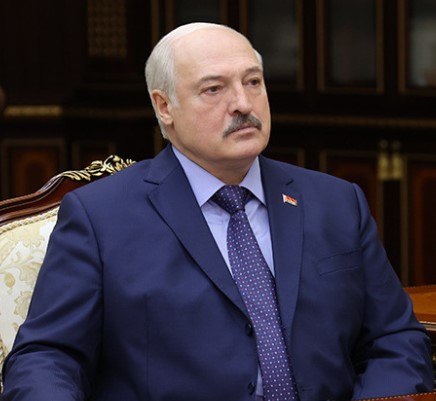VEB Institute proposed to create a crypto-gold ruble

 PIONEER MEIZHENG BIO-TECH (5 in1) JC0586 - Antibiotic tests 5 in 1 / Rapid tests for determining the residual amount of β-lactams, tetracyclines and cephalexin in milk, whey
PIONEER MEIZHENG BIO-TECH (5 in1) JC0586 - Antibiotic tests 5 in 1 / Rapid tests for determining the residual amount of β-lactams, tetracyclines and cephalexin in milk, whey Express tests for determining the residual amount of β-lactams, tetracyclines, chloramphenicol, streptomycins in milk, whey
Express tests for determining the residual amount of β-lactams, tetracyclines, chloramphenicol, streptomycins in milk, whey
The introduction of financial sanctions against Russia not only generates economic losses, but also raises the question of the transition to a qualitatively different national financial and monetary system, according to the report of the VEB.RF Institute for Research and Expertise "International Payments under Sanctions Conditions: Status and Prospects", with which got acquainted with RBC.
The institute's analysts assessed the future of international settlements in national and digital currencies, gold, as well as on the basis of barter and clearing transactions, and made recommendations to the Russian authorities on further steps.
video
Digital currencies and the "golden ruble"
According to VEB analysts, the search for solutions on alternative currencies for foreign trade payments is especially important today. In order to restructure the current financial system in this direction, it is necessary, in their opinion, to take the following measures:
Issue a gold-backed stablecoin under the working title "golden ruble".The Americans will not have any opportunity to block operations with the crypto-gold ruble, since the exchange rate will be pegged to the gold rate on the world market, VEB explains. The main difference from the digital ruble will be precisely in the gold backing, and also in the fact that the “golden ruble” will be directed not to internal settlements, but to external ones, including between third countries without the participation of Russia.
Read on RBC Pro Pro How the "Fear Index" helps to predict the dynamics of the US market Am I a bad parent? Instructions Pro How to care for skin after 35 years:Manturov allowed the legalization of cryptocurrencies in Russia Finance Launch a mechanism for working with cryptocurrencies for leading sub-sanctioned companies on crypto exchanges in friendly countries or create a national crypto exchange.
The Iranian bitcoin mining boom, which is overloading the federal power grid, shows that the cryptocurrency is a viable alternative to the DOLLAR in today's circumstances, the authors of the report write. This is how Iranians circumvent US sanctions , which prevent them from trading and doing business with most foreign companies, paying in dollars, the study says. While the cryptocurrency cannot fully compete with traditional money as a means of payment, however, as a trading instrument with high volatility, it is more attractive than many other assets, analysts are sure.
Russian EXPORT Center Prepares for Cryptocurrency Calculation Tests Economics Develop a system of international settlements of the Central Bank with friendly countries in national digital currencies based on distributed ledger technologies.
The national digital currency, unlike cryptocurrency, is an "additional avatar of the national currency" and can be actively used as a means of payment. Its cross-border use is technically possible, but requires political coordination, VEB analysts say. The most successful experiment in the field of cross-border use of digital currencies is the Inthanon-LionRock project initiated by the Monetary Authority of Hong Kong and the Bank of Thailand in May 2019. It involves the creation of a common platform for multiple settlements in digital currencies of central banks, based on a single multicurrency system. The overall goal of the project is to develop and implement a new cross-border payment infrastructure that will eliminate key challenges, including high cost, slow speed and operational complexity.
Barter and offshore
The new financial system can be built, among other things, on the large-scale use of barter schemes and the creation of new offshore zones, follows from the report. To do this, you need to take the following steps:
Create a trading house for organized barter trading, as well as a separate exchange or section on the exchange for these purposes.A barter transaction is a transaction in which payment is partially or fully made on the basis of an offset in goods or services. In the 1990s, 80% of Russian enterprises practiced barter and offsets in their daily activities, VEB reminds. A barter exchange is a platform for an organized search for counterparties for making barter transactions, which is implemented in the form of a specialized website and provides an automatic search for options for exchanging goods and services. The transition to such transactions will help to conduct foreign trade without the use of "toxic" currencies, the report says. Earlier, the HEAD of the Ministry of Finance Anton Siluanov said that "toxic" for Russia are the dollar and the euro.
Restore interstate clearing settlements by creating a supranational clearing center, whose subdivisions will be located in Russia, China and other interested countries.Clearing settlements can be used to reduce demand for the currencies of unfriendly countries, the report says. In particular, Russia's partners ( China , India, Iran) could provide a trade credit for the purchase of a list of agreed goods with repayment by counter deliveries of Russian products. Currency conversion in this case occurs through the assessment of the value of a basket of certain goods or solid minerals.
Create a special offshore zone for trade with China and give its residents a special status.Such a move could be a compromise solution for the development of cross-border trade with China, VEB believes. Settlement schemes should be built on the principle of the absence of cross-border flow of money, but assume the clearing of goods by customs and the introduction of digital registers of financial settlements based on blockchain technologies. In the future, it would be advisable to consider a blockchain unit of account within the BRICS framework (by analogy with the transferable Soviet ruble or the IMF SDR), VEB experts believe.
Expansion of payment systems
Several proposals of the VEB Institute relate to changes in the operation of existing payment systems and the expansion of settlements in national currencies. In particular:
Extend the Mir card system to payments in foreign currencies of friendly countries. Support at the government level the connection of Russian banks (including those under sanctions) to the UnionPay system.After the suspension of Mastercard and Visa activities in Russia, only two payment systems are available as an alternative to citizens - the national Mir and the Chinese UnionPay. Mir has existed since 2015, but transactions are carried out only in rubles. In addition, it is served in a very limited number of countries. The UnionPay card works in 180 countries, but only ten banks currently issue it in Russia, the report says. As a result, "card tourism" begins to develop - Russians are looking for countries where banks are ready to open accounts for non-residents with a Russian passport.
Turn the Financial Message Transfer System (SPFS, the Russian analogue of the SWIFT system, from which a number of large Russian banks have been disconnected) into an international payment system in the CIS and Greater Eurasia, including China and other friendly countries.Such a measure will require negotiations not only between central banks, but also at the government level. In addition, it is necessary to work out the compatibility issues of the payment infrastructure. With the Chinese system China International Payment System (CIPS) (allows you to directly make money transfers in yuan and other currencies with Chinese partners), it is advisable to conclude a separate partnership agreement, VEB analysts say.
Earlier, Prime Minister Mikhail Mishustin called on the CIS countries to connect their banks to the SPFS. “In the field of financial markets, we see as a priority the connection of banks of the CIS member states to the Financial Message Transmission System of the Bank of Russia, as well as the organization of intersystem docking of the Mir payment system with national payment systems, ensuring the disclosure of the infrastructure for accepting bank cards,” Mishustin said. .
EAEU banks hit by sanctions against Russian financial system Economics Revive the project of an international payment system within the CIS.
The number of services that allow you to transfer money between Russia and other countries, including unfriendly ones, is decreasing every day, VEB says. PAYPAL, Paysend, Wise, and Western Union have suspended their work. Unistream continues to operate, which, however, has reduced the number of available countries, as well as Golden Crown and Contact, which perform operations only between individuals. The creation of an international payment system within the CIS will expand the practice of transfers and settlements between private individuals and legal entities, analysts are sure.
Launch a system of insurance (hedging) of currency risks, including through currency swaps of central banks to expand settlements in the national currencies of friendly countries.The main problems of mutual settlements in national currencies include their relatively low liquidity, high transaction costs and exchange rate volatility, as well as devaluation risks. Currently, mutual settlements between the central banks of friendly countries are hindered by the absence of swap lines in national currencies, which allow foreign exchange transactions to be made on the basis of fixed rates, VEB is sure.
Banks have proposed a "snake in the tunnel" mechanism for settlements in "soft" currency Economics
Read together with it:
- Парагвай: Экспорт субпродуктов является растущей отраслью и уже достиг 95,4 млн долларов СШАЭкспорт говяжьих субпродуктов в этом году значительно вырос. К концу августа выручка составила 95,4 млн долларов США по сравнению с 54,6 млн долларов США на тот же конец прошлого года. По данным SENACSA, в конце августа этого года было экспортировано 51 миллион килограммов мяса по сравнению с 33,7 миллиона килограммов на конец того же месяца прошлого года. Экспорт субпродуктов увеличился на 51,3%....
- Новые горизонты сотрудничества: Россия и Аргентина обсуждают совместный доступ на рынки продукции животного происхожденияОдной из ключевых тем конференции стал контроль за производством ветеринарных препаратов в Аргентине. Аргентинская сторона представила свою систему контроля, включающую Управление ветеринарных продуктов и Управление лабораторий животных. Эти организации обеспечивают высокие стандарты безопасности, так как каждая производственная единица подвергается проверкам каждые 3-5 лет и зарегистрирована в ин...
- С января по июль экспорт свинины из ЕС вырос на 1,6%На втором месте оказались Нидерланды с объёмом экспорта в 392 000 тонн. Дания экспортировала свинину в третьи страны с объёмом в 308 000 тонн, что примерно на 13% меньше, чем в предыдущем году. Германия экспортировала 180 000 тонн, что на 18% меньше, чем годом ранее. Это было обусловлено, главным образом, дополнительными ограничениями на экспорт, вызванными вспышкой ящура в начале года. Помимо зап...
- Московская область планирует нарастить мясное производство на 25% к 2030 годуВ Московской области более 100 предприятий уже выпускают около 305,000 тонн мяса, из которых значительная доля поступает от 19 ведущих производителей свинины и мяса птицы. Также в регионе реализуются два новых инвестиционных проекта: в Можайске строится утиная ферма на 125,000 птиц, а в Ступино — овцеводческое хозяйство на 11......
- В Кремле пообещали ответ на санкции сообразно интересам РоссииДмитрий Песков В Кремле начали анализировать введенные санкции для разработки ответных мер, заявил пресс-секретарь президента России Дмитрий Песков, передает корреспондент РБК. «В настоящий момент анализируются те санкции, которые определены. Будем делать то, что наилучшим образом соответствует нашим интересам», — сообщил Песков, отвечая на вопрос об ответных мерах России. 19-й пакет санкции Еврос...
- Zakharova promised "tough steps" in response to the 19th EU sanctions package.Maria Zakharova RUSSIA will respond harshly to the latest round of EU sanctions, Russian Foreign Ministry spokesperson Maria Zakharova stated on TELEGRAM . The EU previously adopted the 19th package of anti-Russian sanctions, which included a ban on the import of Russian LNG, new restrictions on oil companies, ships, banks, and the EXPORT of certain goods, as well as restrictions on the movement o...


























































